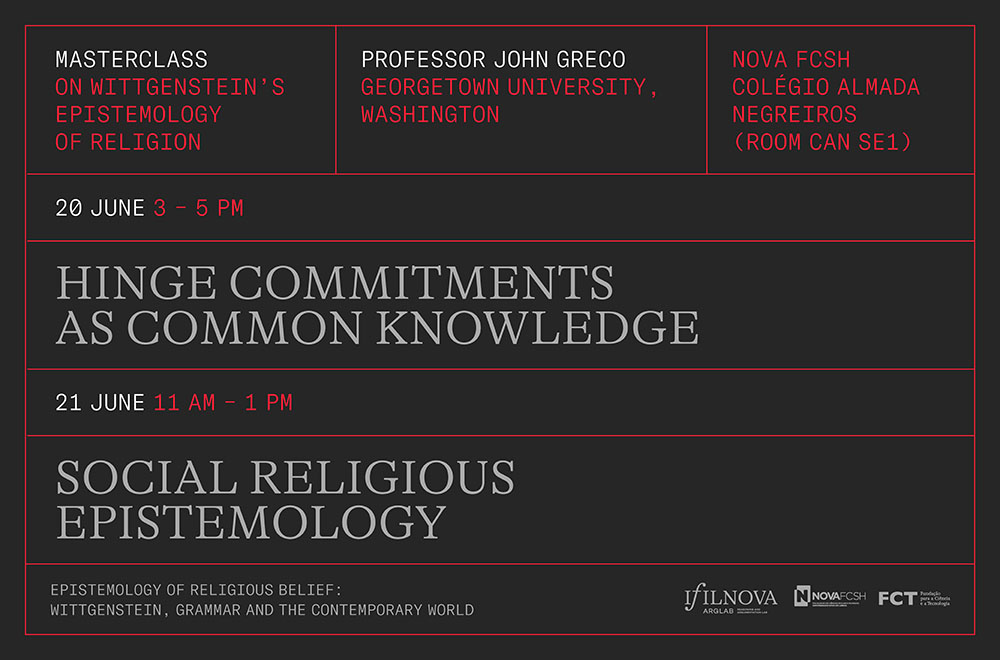Two-day Masterclass on Wittgenstein’s Epistemology of Religion

NOVA Institute of Philosophy (IFILNOVA)
Faculty of Social Sciences and Humanities – NOVA University Lisbon (NOVA FCSH)
PROGRAMME
Hinge Commitments as Common Knowledge
20 June 2022
3 – 5 PM
This paper proposes that we can understand Wittgensteinian hinge commitments in terms of a “knowledge economy” framework. Specifically, epistemic communities have three distinct concerns regarding the way they manage information: the acquisition of information, its distribution, and its pooling for common use. In different terms, knowledge economies are characterized by generated knowledge, transmitted knowledge, and common knowledge, where the latter is understood on the analogy of public property – knowledge that members of the community, in a sense, “get for free”. Understood this way, Wittgensteinian “hinge knowledge” can be understood as a natural and/or cultural inheritance.
Social Religious Epistemology
21 June 2022
11 AM – 1 PM
This paper argues for a “social turn” in religious epistemology. The governing idea is that an adequate religious epistemology must also be a social epistemology; i.e., one that takes seriously our epistemic dependence on other persons and on other features of the social environment. In particular, a social religious epistemology turns our attention to interpersonal relations, religious communities, and institutions, and shows how the moral and practical dimensions of these can have epistemological significance. By way of illustration, the paper argues that a social orientation allows progress on the problem of religious diversity, Hume’s critique of testimonial evidence for miracles, and the problem of divine hiddenness.
Bio
John Greco holds the Robert L. McDevitt, K.S.G., K.C.H.S. and Catherine H. McDevitt L.C.H.S. Chair in the Department of Philosophy at Georgetown University. His publications include Putting Skeptics in Their Place: The Nature of Skeptical Arguments and Their Role in Philosophical Inquiry (Cambridge, 2000), Achieving Knowledge: A Virtue-Theoretic Account of Epistemic Normativity (Cambridge, 2010), and The Transmission of Knowledge (Cambridge, 2020). He is co-editor (with Christoph Kelp) of Virtue-Theoretic Epistemology: New Methods and Approaches (Cambridge, 2020).
Other info
The masterclass will take place in-person. Attendance is free of charge but space is limited and registration is required. To register, please send an email to Nuno Venturinha
(nventurinha.ifl@fcsh.unl.pt).
This masterclass is organized within the framework of the FCT-funded project “Epistemology of Religious Belief: Wittgenstein, Grammar and the Contemporary World” (PTDC/FER-FIL/32203/2017, PI: Nuno Venturinha), hosted by the Reasoning and Argumentation Laboratory (ArgLab) of IFILNOVA.
For more information about the project, please visit this page.

